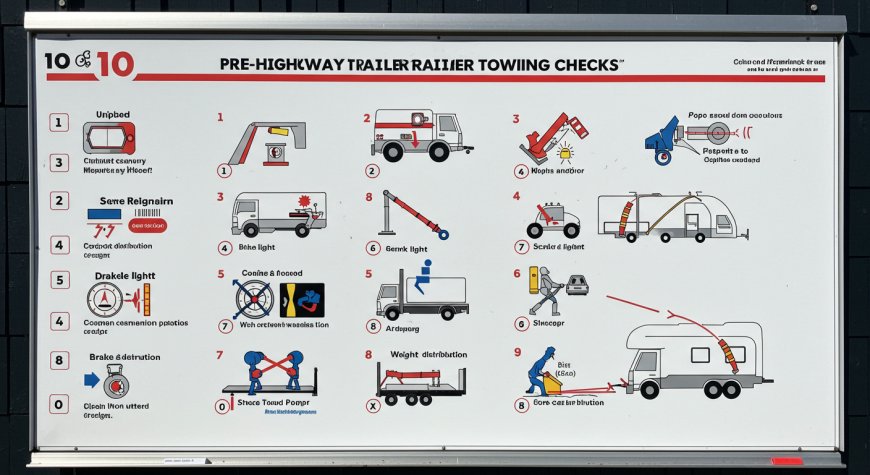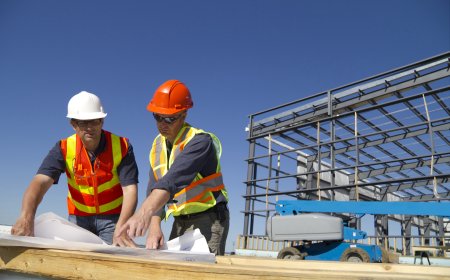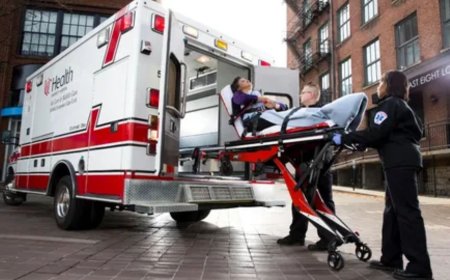10 Things You Must Check Before Towing a Trailer on the Highway
Before towing a trailer on the highway, check your vehicle’s capacity, hitch, brakes, lights, tires, load balance, and safety chains. A quick test drive and gear check can save you big trouble. Safety first—happy towing!

Towing a trailer down a bustling highway isn't just about hitching it up and hitting the gas. Trust me, I learned this the hard way one summer trip with a pop-up camper that decided to pop open mid-drive (yeah, not fun). If you're planning to tow anythingbe it a boat, RV, utility trailer, or a mobile BBQ stationyou need to do some serious checks first. Here are the 10 things I always inspect before towing a trailer on the highway.
1. Check Your Tow Vehicles Towing Capacity
Why It Matters:
Your vehicle isnt Superman. It has a limit to how much it can safely tow.
My Experience:
When I first started towing a trailer, I underestimated how much weight I was pulling. My SUV groaned like it had eaten too much at Thanksgiving. Bad move. Turns out, I was 800 lbs over the tow limit.
How to Check:
-
Look in your owners manual or the manufacturers website.
-
Verify the Gross Vehicle Weight Rating (GVWR) and Gross Trailer Weight (GTW).
Pro Tip: Never max it out. Give yourself a safety cushion of at least 10% under the limit.
2. Inspect the Hitch & Coupler
Why It Matters:
This is the handshake between your vehicle and trailer. If its not secure, youre in for a wild ride (and not the fun kind).
What to Look For:
-
Is the hitch ball properly seated in the coupler?
-
Is the latch locked and secured with a safety pin or lock?
-
Is the hitch rated for the weight of your trailer?
When I Tried This: I once used the wrong size ball mount and the trailer popped off at a red light. Not my proudest moment.
3. Examine the Trailer Brakes
Why It Matters:
Brakes save livessimple as that. Especially when youre hauling a heavy load.
How to Check:
-
Manually test the trailer brake controller.
-
Listen for any grinding or squeaking.
-
Inspect the brake pads and rotors if accessible.
Helpful Tip:
If your trailer weighs over 3,000 lbs, trailer brakes are often required by law in many states.
4. Ensure the Lights Work Properly
Why It Matters:
Blinkers, brake lights, and running lights keep you and others safe on the road.
My Routine:
I always get someone to stand behind the trailer and confirm all signals work when I hit the brakes or turn signals.
Common Fix:
If a lights out, check the bulbs first, then the wiring or connectors. A little dielectric grease on connectors can help prevent corrosion.
5. Check Tire Pressure (and Tire Age!)
Why It Matters:
Underinflated or old tires are ticking time bombsespecially at high speeds.
What I Do:
-
Use a digital tire pressure gauge to match the PSI listed on the sidewall.
-
Inspect for dry rot, cracks, or bulges.
-
Dont forget the spare!
Pro Tip: Replace trailer tires every 5-7 years even if they look fine. They age out even sitting idle.
6. Balance Your Load
Why It Matters:
Unbalanced loads can cause sway, fishtailing, or even tip-overs.
My Rule of Thumb:
-
Put about 60% of the weight in the front half of the trailer.
-
Keep heavy items low and centered.
-
Secure everything with ratchet straps or cargo nets.
Mini Buyers Guide: Best Load Balancing Tools
-
Weight distribution hitches (Andersen or Equal-i-zer)
-
Tongue weight scale (like Weigh Safe)
-
Wheel chocks (for stability while loading)
7. Cross the Safety Chains
Why It Matters:
If your trailer disconnects, safety chains are your last line of defense.
Best Practice:
-
Cross the chains in an X under the hitch.
-
Leave just enough slack for turning, but not so much that they drag.
When I Tried This:
One time I forgot to cross them. Trailer popped off, chains dragged and sparked like a firework show. Lesson learned.
8. Double-Check the Trailer Jack
Why It Matters:
Leaving the jack down will ruin your trailer tongueand possibly your bumper.
Checklist:
-
Fully retracted and locked.
-
If its a swivel jack, ensure its locked in the upright position.
Quick Tip: Give it a final glance just before you drive away.
9. Secure All Doors, Hatches, and Contents
Why It Matters:
You dont want your camping chairs or toolbox flying out on the freeway.
My Process:
-
Walk around the trailer.
-
Tug on every door, hatch, and compartment.
-
Secure interior items with bungee cords or nets.
Bonus Tip:
Use padlocks or latch locks to prevent theft or accidental opening.
10. Test Drive Before Hitting the Highway
Why It Matters:
You need to feel the tow dynamics before committing to high speeds.
How I Do It:
-
Drive a loop around the neighborhood.
-
Test braking, cornering, and acceleration.
-
Listen for weird noises or scraping.
Personal Anecdote:
I once ignored this step and discovered brake issues halfway into a 5-hour trip. Had to turn back and lose a day.
Helpful Tips for First-Time Towers
-
Know Your State Laws Trailer brake requirements and speed limits vary.
-
Use Tow Mirrors Especially if your trailer is wider than your vehicle.
-
Avoid Sudden Movements Gentle turns and braking keep everything stable.
-
Plan Fuel Stops Not every gas station is trailer-friendly.
Mini Buyers Guide: Essential Gear for Towing
| Item | Why Its Useful |
|---|---|
| Trailer Brake Controller | Required for electric brakes |
| Trailer Hitch Lock | Prevents theft |
| Tire Pressure Monitoring System (TPMS) | Real-time tire alerts |
| Weight Distribution Hitch | Smoother, safer ride |
| Wireless Backup Camera | Easier hookups, more visibility |
Frequently Asked Questions (FAQs)
Q: Do I need a special license to tow a trailer?
A: In most U.S. states, a regular drivers license is fine unless you're towing over 10,000 lbs. Check your DMVs website to be sure.
Q: Whats the best speed for towing a trailer on the highway?
A: 5565 mph is safest. Some states even cap trailer speeds at 55 mph.
Q: How often should I check the trailer during a trip?
A: Every 100150 miles. Pull over, check lights, tires, hitch, and load.
Q: Can any car tow a trailer?
A: Only if it has the proper towing capacity and hitch setup. Always check the vehicles specs first.
Q: Is trailer sway dangerous?
A: Absolutely. It can lead to loss of control. Use a sway control hitch and balance your load to prevent it.
Final Thoughts (and a Little Nudge to Share!)
Towing a trailer isn't rocket science, but it does require attention to detail and a little prep. Every time I do my 10-point checklist, I drive more confidently knowing Ive done my part to stay safeand keep others safe too.
Got your own trailer towing tips or horror stories? Id love to hear them. Drop a comment below and lets swap some highway wisdom!
Happy (and safe) towing!









































